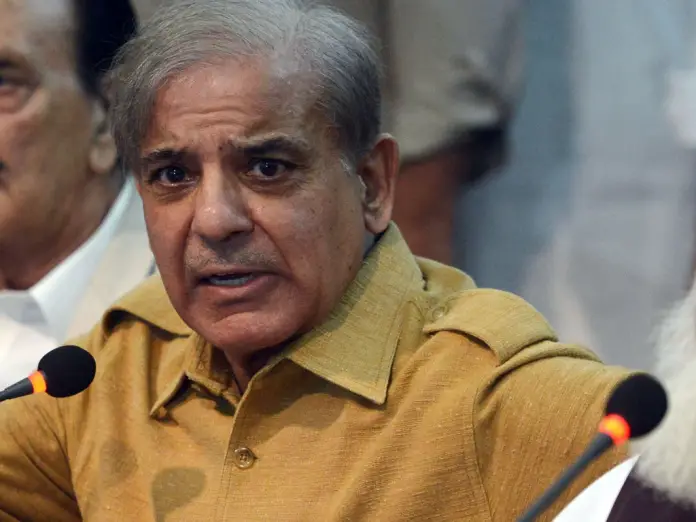With the opposition leader becoming the prime minister after the success of the no-confidence motion against Imran Khan, the world wants to know the new premier’s political vision.
By changing the name of PTI-led Ehsaas program to Benazir Income Support Program (BISP) and naming PM House as Pakistan House, the PM has shown his mindset. He also announced a 10 percent increase in the federal government employees’ salary, something that Miftah Ismail refused. Restoring one weekly off instead of the two was a good step.
The former PM, Imran Khan, had also indulged in counterproductive issues like disposing of buffalos, official vehicles and declaring the PM, governor houses as universities, etc. There are multiple challenges for the newly elected Prime Minister, Mian Shehbaz Sharif. He has no training to work as a federal functionary. The mercurial political stage he is to act on is abhorrently unpredictable.
Surrounded by opportunists, the Shehbaz government would have to face issues on several levels. He can control bureaucracy but allies and the economy would be hard to master. PM Shehbaz is to face corruption charges in the courts, brought on by National Accountability Bureau (NAB). Whenever a ruler undergoes such an accountability process in his country it becomes difficult for him to save face while facing the media.
What is the road map for PM Shehbaz Sharif for reforms in the system? What will be his policies, both on internal and external fronts, is something which is not clear yet. Pakistan Tehreek-e-Insaf’s government had come into power on the slogan of changing the system but it could not. There was severe criticism on PM Imran Khan for his failure to bring reforms as he had trumpeted.
There is no mechanism to control rising prices neither in the provinces nor in the federal territory. Bureaucracy is of the view that it has no powers to control mafias that run the commodities market. The officers had been continuously criticizing the trimming of their powers after the abolition of the magistracy. During former dictator General Pervez Musharraf’s regime, to ensure separation between executive and judiciary, the district magistracy had been abolished. All the magisterial powers were given to judicial magistrates, meaning, nearby police were not to report or respond to the civil officers.
Despite their longstanding efforts to regain magisterial or Justice of Peace powers (22A, 22B), they could not succeed. Under these clauses, they could direct the police to register cases against the culprits. At present, a case on the restoration of magistracy is being heard in the Supreme Court of Pakistan. Three out of four provinces have expressed their keenness to restore the magistracy while Khyber Pakhtunkhwa did not submit any response to the apex court. Parvez Musharraf had developed a district-based delivery system with district Nazim or mayor as head of the local government. But with the passage of time, different governments reversed the devolved powers and budget at the district level.
Shehbaz Sharif, the then chief minister of Punjab, had also grasped and centralized the powers earlier devolved to the districts. Through the Civil Administration Act 2017, though the office of Deputy Commissioner was restored, but it was not given the powers he had before the devolution of 2001.
The writ of the government has become very poor as there is politicization in the bureaucracy. Despite all-out efforts, former Prime Minister Imran Khan could neither depoliticize the bureaucracy nor bring any reforms in the colonial system. It will be a challenge for Shehbaz Sharif to depoliticize the rank and file of the civil, revenue and police services.
A senior police officer said that after the change in command, there will be a massive reshuffle in civil and police establishments. Terming it just a cosmetic step, he said that the PM would constitute his old team. Dr Tauqir Shah as principal secretary to PM and Imdadullah Bosal likely to hold top Punjab office shows the same mindset. There is no concrete policy on transfers and postings of officers. Only loyal officers are awarded lucrative positions. Only hardworking, honest and intelligent officers should be given important positions in the bureaucracy, the official suggested.
There should be no pick and choose while transferring and posting of officers. One of the scams of the outgoing Chief Minister Usman Buzdar maybe his money-motivated transfers and postings. Farah Khan and her husband Ahsan Jameel Gujjar and some other characters are in the headlines for using their relations with the Buzdar administration for the purpose.
Naseer Ahmad, a PML-N activist, said that Shehbaz will bring reforms in the system. He will also boost economy and end corruption in the country. Faisal Sultan, an analyst, said that political chicanery and coercion would further damage the dwindling democracy. PM Shehbaz running the administrative affairs through his coterie may end in a debacle. Administrative intimidation, if exercised, would further create problems for the ruling alliance, he feared. He also criticized restoring BISP. He said that such practices to name national institutions after political leaders should be discouraged.
Moeen Ahmad, another analyst, was of the view that Shehbaz does not possess an iota of statecraft as he worked as provincial chief only. He said that the PM’s political vision was obscure and the actions of different law enforcement agencies against social media activists reflected that there was an element of intimidation. The PM should avoid putting old wine in a new bottle.







